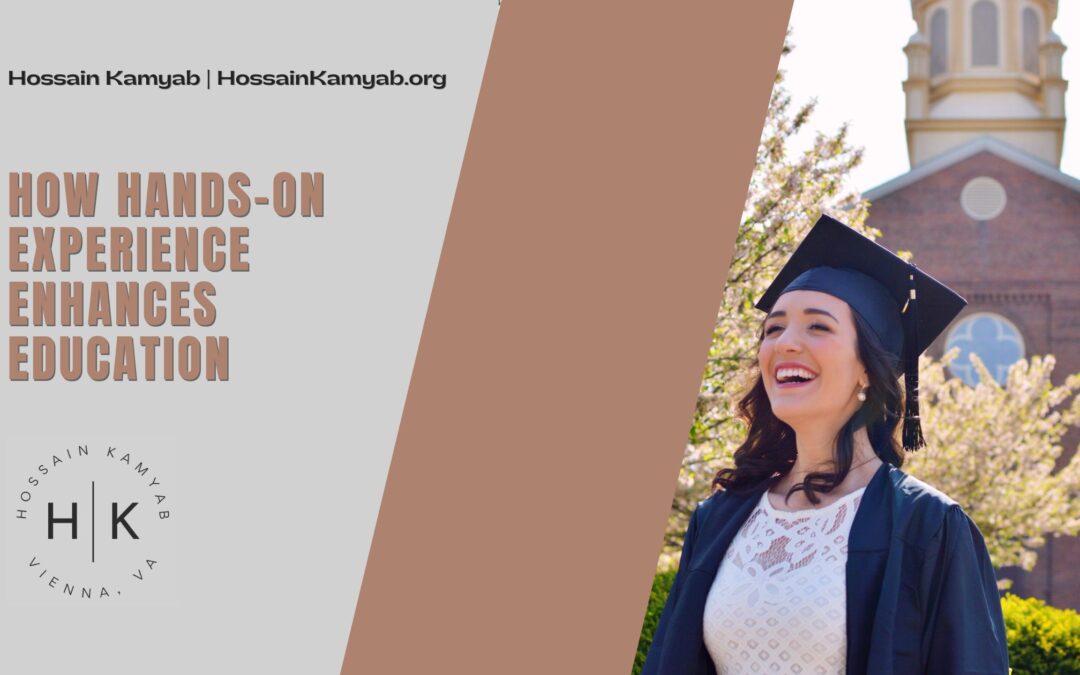Education is a transformative journey that goes beyond traditional classroom instruction. While theoretical knowledge forms the foundation, hands-on experience plays a vital role in enhancing learning outcomes. Hands-on experience refers to active learning methods that engage students in real-world, practical tasks, allowing them to apply theoretical concepts, develop critical skills, and deepen their understanding.
Active Engagement and Retention:
When students are actively engaged through practical activities, they are more likely to retain information and develop a deeper understanding of the subject matter. By participating in hands-on experiments, simulations, and projects, students connect theoretical concepts with real-world applications, making learning more meaningful and memorable.
Application of Theoretical Knowledge:
Hands-on experience provides students with opportunities to apply theoretical knowledge in practical settings. It bridges the gap between theory and practice, enabling students to see the relevance and real-life implications of what they have learned. Whether it’s conducting scientific experiments, building prototypes, or solving real-world problems, hands-on experience allows students to transfer their knowledge into action and gain valuable skills that can be utilized beyond the classroom.
Skill Development:
Hands-on experience fosters the development of essential skills that are crucial for success in the modern world. It cultivates critical thinking, problem-solving, creativity, collaboration, and communication skills. Through hands-on projects, students learn to analyze problems, think critically, experiment with different solutions, and work effectively in teams. These skills are beneficial not only for academic success but also for future careers, where practical skills and the ability to adapt to new challenges are highly valued.
Experiential Learning:
Experiential learning enables students to make connections between theory and practice by actively engaging with the subject matter. By reflecting on their experiences, students gain insights into their own learning process, refine their understanding, and develop a deeper level of comprehension. This iterative cycle of experience, reflection, and application enhances learning outcomes and fosters a lifelong love for learning.
Real-World Problem Solving:
By engaging in hands-on activities, students learn to think critically, analyze complex situations, and propose innovative solutions. They develop a problem-solving mindset that equips them with the skills needed to address societal challenges in areas such as science, technology, engineering, arts, and mathematics (STEAM). Hands-on experience nurtures an entrepreneurial spirit and fosters a sense of agency, inspiring students to become agents of positive change.
Career Readiness:
Employers increasingly value practical skills and hands-on experience when hiring new talent. By engaging in real-world projects, internships, or apprenticeships, students gain exposure to professional environments, industry practices, and networking opportunities. Hands-on experience helps students develop a sense of professional identity, build a portfolio of work, and acquire industry-specific skills that enhance their employability.
Personal Growth and Confidence:
Hands-on experience nurtures personal growth and confidence in students. When students actively engage in practical tasks, they experience a sense of ownership, achievement, and self-efficacy. Hands-on experiences provide opportunities for students to overcome challenges, take risks, and learn from failures. This builds resilience, self-confidence, and a growth mindset, empowering students to embrace new opportunities and pursue their passions with enthusiasm.
From fostering critical thinking and problem-solving skills to preparing students for future careers, hands-on experience nurtures holistic development and empowers students to become lifelong learners. Embracing hands-on learning methods can revolutionize education and create a generation of capable, confident, and adaptable individuals ready to navigate the challenges of the future.

